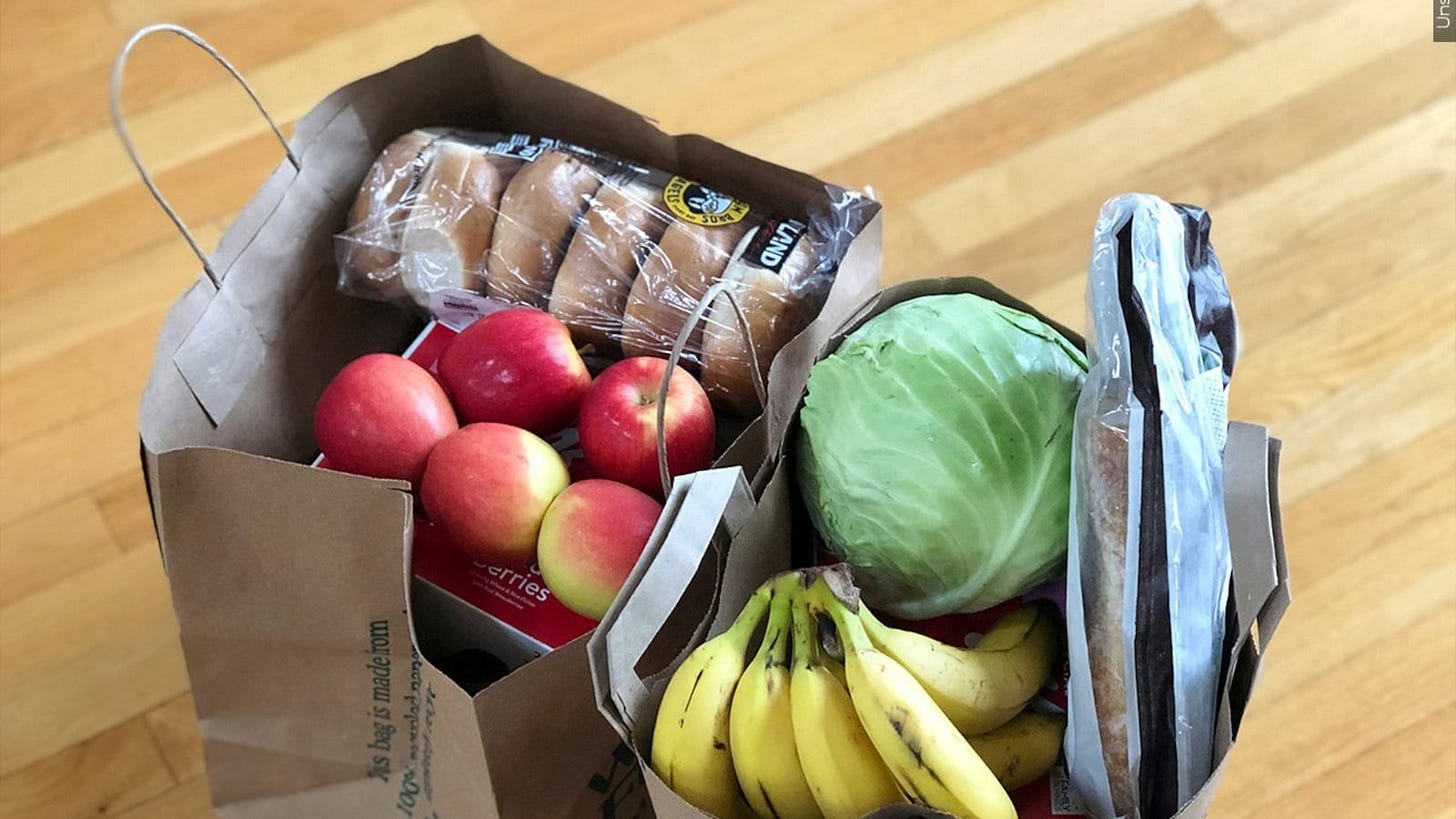Welcome to the InsightBit podcast, where we dive deep into the policies and trends shaping our world. Today, we’re exploring a significant development in U.S. health policy: the Make America Healthy Again (MAHA) movement and its push to reform the Supplemental Nutrition Assistance Program (SNAP) by excluding certain foods like soda and candy. Signed waivers in Arkansas, Idaho, and Utah, alongside earlier approvals for Nebraska, Iowa, and Indiana, mark a bold step toward redefining nutrition assistance. This initiative, backed by the Trump administration, aims to combat chronic disease and promote healthier lifestyles. But what does it mean for millions of SNAP recipients, public health, and the broader social welfare landscape? Let’s unpack this story, verify its implications, and explore the diverse perspectives surrounding it.
The MAHA Movement and SNAP Waivers: What’s Happening?
The MAHA movement, championed by U.S. Secretary of Health and Human Services Robert F. Kennedy Jr. and U.S. Secretary of Agriculture Brooke L. Rollins, is a national effort to address America’s chronic disease epidemic. A key component of this initiative involves amending SNAP, the nation’s largest nutrition assistance program, which serves approximately 42 million Americans annually, according to the U.S. Department of Agriculture (USDA). SNAP provides financial assistance to low-income individuals and families to purchase food, with an average monthly benefit of about $177 per person in states like Idaho.
On June 10, 2025, Secretaries Rollins and Kennedy signed waivers allowing Arkansas, Idaho, and Utah to restrict certain foods from SNAP purchases, effective in 2026. These waivers follow similar approvals for Nebraska, Iowa, and Indiana. Arkansas’s waiver, effective July 1, 2026, excludes soda (including low- and no-calorie varieties), fruit and vegetable drinks with less than 50% natural juice, other “unhealthy drinks,” and candy, including flour-based confections like Kit Kat bars. Idaho’s waiver, effective January 1, 2026, bans soda and candy, while Utah’s waiver, also effective January 1, 2026, prohibits soft drinks defined as carbonated, sweetened beverages. These restrictions aim to redirect SNAP benefits toward healthier food choices, aligning with the MAHA movement’s goal of improving nutrition and reducing diet-related diseases.
The USDA reports that 23% of SNAP benefits—approximately $27 billion annually—are spent on soft drinks, snacks, candy, and desserts. This statistic, cited by Arkansas Governor Sarah Huckabee Sanders, underscores the rationale for these waivers. Proponents argue that taxpayer-funded benefits should not subsidize foods linked to obesity, diabetes, and other chronic conditions. Idaho Governor Brad Little emphasized that the waivers represent “common sense” reforms to improve nutrition, particularly for children, while respecting taxpayer generosity.
Verifying the Context: Health Data and Policy Background
To understand the implications of these waivers, let’s ground our discussion in data from reputable health agencies. The Centers for Disease Control and Prevention (CDC) reports that 60% of U.S. adults have at least one chronic disease, such as obesity, type 2 diabetes, or heart disease, and 40% have two or more. Among children, the CDC notes that prediabetes affects one in three adolescents aged 12 to 19, while 40% of school-aged children have at least one chronic condition. These alarming trends highlight the urgency of addressing diet-related health issues.
The National Institutes of Health (NIH) and peer-reviewed studies in journals like the Journal of the American Medical Association (JAMA) provide further context. A 2019 study in JAMA found that high consumption of sugar-sweetened beverages is associated with a 20% increased risk of type 2 diabetes. Similarly, a 2020 study in The Lancet linked excessive sugar intake to obesity and cardiovascular disease. These findings support the MAHA movement’s focus on reducing access to sugary foods through SNAP, as soda is the top commodity purchased with SNAP benefits, surpassing fruits and vegetables.
Historically, SNAP has allowed recipients to purchase nearly any food item except alcohol, tobacco, hot foods, and non-food products. However, over the past two decades, states have repeatedly sought waivers to restrict “unhealthy” foods, with little success. According to the Center on Budget and Policy Priorities, six prior waiver requests since 2004 were either denied, withdrawn, or deemed incomplete due to challenges in defining “unhealthy” foods and the administrative complexity of enforcing restrictions. The Trump administration’s shift to approving these waivers marks a significant policy change, reflecting a willingness to experiment with state-level innovations.
The MAHA-driven SNAP waivers have far-reaching implications for public health, healthcare access, and social welfare. Let’s break it down.
By excluding soda and candy, the waivers aim to reduce consumption of high-sugar, low-nutrient foods linked to chronic diseases. The Kaiser Family Foundation reports that SNAP serves a diverse population, including 36% children, 17% elderly, and 20% disabled individuals, many of whom are at higher risk for diet-related illnesses. For example, the CDC notes that low-income communities, which rely heavily on SNAP, face disproportionate rates of obesity (40% in low-income adults vs. 32% overall) due to limited access to fresh produce and reliance on calorie-dense, processed foods.
However, critics argue that restricting SNAP purchases may not significantly improve health outcomes. A 2018 study in the American Journal of Public Health found that SNAP participants’ dietary patterns mirror those of other low-income Americans, with no evidence that restricting sugary foods alters overall consumption. Kavelle Christie, a health policy expert, told Newsweek that the issue lies not in misuse of benefits but in limited access to healthy foods in rural areas and food deserts, where convenience stores often dominate. This suggests that waivers alone may not address systemic barriers to healthy eating.
The MAHA movement’s focus on prevention could reduce healthcare costs associated with chronic diseases. The CDC estimates that obesity-related illnesses cost the U.S. healthcare system $147 billion annually, while diabetes costs $327 billion. By encouraging healthier food choices, the waivers could lower the incidence of these conditions, easing the burden on Medicare and Medicaid, which cover many SNAP recipients. The Centers for Medicare and Medicaid Services (CMS) data show that 70% of SNAP households include at least one member enrolled in Medicaid, highlighting the overlap between nutrition assistance and healthcare.
Yet, implementing these restrictions poses logistical challenges. The USDA has previously rejected waivers citing high administrative costs, such as updating point-of-sale systems and training retailers. In Idaho, where 132,000 residents receive SNAP, the state plans to educate retailers starting in late 2025. If poorly executed, these changes could create confusion at checkout, disproportionately affecting vulnerable populations.
SNAP is a critical safety net, with 41.7 million participants nationwide. Restricting eligible foods could alter the program’s accessibility and perception. Anti-hunger advocates, like Katie Bergh from the Center on Budget and Policy Priorities, argue that these restrictions are paternalistic and may stigmatize SNAP recipients by implying they cannot make responsible food choices. A 2021 Brookings Institution report found that SNAP households spend 80% of benefits on staples like meat, bread, and milk, suggesting that sugary foods are a small part of their budgets.
Conversely, proponents like Governor Sanders argue that taxpayers should not subsidize unhealthy eating habits that drive healthcare costs. The waivers also include provisions to expand access to healthier options, such as Arkansas’s allowance for hot rotisserie chicken, which could enhance dietary variety for SNAP recipients.
The SNAP waivers have sparked a polarized debate, reflecting broader ideological divides in health policy.
Conservative leaders, including Governors Sanders, Little, and Mike Braun of Indiana, frame the waivers as a return to SNAP’s original purpose: providing nutritious food. They emphasize personal responsibility, arguing that individuals should prioritize healthy choices and that taxpayer-funded programs should not enable poor diets. Secretary Rollins has called states “laboratories of democracy,” encouraging innovative policies to reduce dependency and improve health outcomes. This aligns with conservative principles of limited government intervention and fiscal responsibility, as seen in Indiana’s additional executive orders to strengthen work requirements and verify SNAP eligibility.
The MAHA movement also resonates with conservative skepticism of processed food industries. Posts on X from users like @SecRollins and @mayes_middleton highlight support for banning “Big Soda” products, framing the waivers as a stand against corporate interests that profit from unhealthy diets. This perspective sees the waivers as empowering individuals to make better choices while protecting public funds.
Progressive critics view the waivers as restrictive and inequitable. They argue that limiting SNAP purchases does little to address the root causes of poor nutrition, such as poverty and lack of access to grocery stores. A 2023 study in the New England Journal of Medicine found that food insecurity, affecting 13% of U.S. households, is a stronger predictor of poor health outcomes than specific food choices. Advocates like Bergh contend that education and subsidies for healthy foods, rather than bans, would better support SNAP recipients.
Anti-hunger groups also warn that restrictions could exacerbate stigma, discouraging eligible individuals from participating in SNAP. The program’s enrollment has already declined from 47 million in 2013 to 42 million in 2024, per USDA data, partly due to administrative barriers. Progressives advocate for expanding SNAP benefits and investing in community food programs to promote equity and access.
Medical professionals and bioethicists offer nuanced views. The American Medical Association supports policies to reduce sugar consumption but emphasizes the need for comprehensive strategies, including nutrition education and subsidies for fresh produce. A 2022 JAMA study suggested that incentivizing healthy foods through SNAP could increase fruit and vegetable consumption by 15%, a potentially more effective approach than restrictions.
Patient advocacy groups, like the West Side Campaign Against Hunger, highlight the practical challenges faced by SNAP recipients. Martina Santos, a SNAP user with diabetes, told PBS News that she relies on food pantries for fresh produce, underscoring the need for accessible healthy options. Bioethicists raise concerns about autonomy, arguing that restricting food choices infringes on personal freedom, particularly for low-income individuals who already face limited options.
Industry groups, such as American Beverage, oppose the waivers, calling them “punitive” and ineffective. They argue that providing clear nutritional information is a better way to empower consumers, as bans may lead to confusion and longer checkout lines without improving health outcomes.
The SNAP waivers raise ethical questions about balancing public health goals with individual autonomy. On one hand, the government has a responsibility to promote population health, especially given the $474 billion combined cost of obesity and diabetes. On the other hand, restricting SNAP purchases could be seen as coercive, particularly for low-income individuals who rely on the program for survival. Bioethicists argue that such policies must be evidence-based and avoid disproportionately harming vulnerable groups.
Another ethical issue is equity. Low-income communities often lack access to supermarkets, forcing reliance on convenience stores with limited healthy options. A 2024 USDA report found that 8.4% of U.S. households live in food deserts, with higher prevalence in rural and minority communities. Without addressing these structural barriers, the waivers may unfairly limit choices for those with the least agency.
There’s also the question of defining “unhealthy” foods. The Arkansas waiver’s inclusion of flour-based candies like Kit Kat bars, while allowing high-sugar juices, highlights the challenge of creating consistent standards. Past USDA rejections of waivers cited this ambiguity, and critics argue that vague definitions could lead to arbitrary enforcement.
The MAHA movement’s SNAP waivers represent a bold experiment in health policy, aiming to curb chronic diseases by reshaping nutrition assistance. For individuals, the waivers could encourage healthier eating habits, potentially reducing the incidence of obesity and diabetes. For society, they align with efforts to lower healthcare costs and promote fiscal responsibility. However, their success depends on effective implementation, retailer cooperation, and complementary measures like nutrition education and access to fresh foods.
To address the challenges, states should invest in outreach to educate SNAP recipients and retailers about the new rules. Policymakers could also explore incentives, such as increased benefits for purchasing fruits and vegetables, as seen in programs like the USDA’s Gus Schumacher Nutrition Incentive Program, which boosted produce consumption by 12% in pilot studies. Addressing food deserts through mobile markets or subsidized grocery delivery could further enhance equity.
For our listeners, this story invites reflection on how health policies shape our lives. Consider how access to nutritious food affects your community and whether these waivers strike the right balance between guidance and freedom. Stay informed, engage with local leaders, and form your own views on how we can build a healthier America.
#Healthcare #PublicHealth #SNAP #Nutrition #MAHA #MakeAmericaHealthyAgain #HealthPolicy #ChronicDisease #Obesity #Diabetes #SocialWelfare #FoodAssistance #USDA #HHS #Arkansas #Idaho #Utah #Nebraska #Iowa #Indiana #HealthyEating #FoodDeserts #Equity #Poverty #NutritionEducation #TaxpayerFunds #ConservativePolicy #ProgressivePolicy #Bioethics #AmericanBeverage #SNAPReform #DietaryGuidelines #HealthDisparities #FoodSecurity #TrumpAdministration #PublicHealthPolicy #SNAPBenefits











Share this post